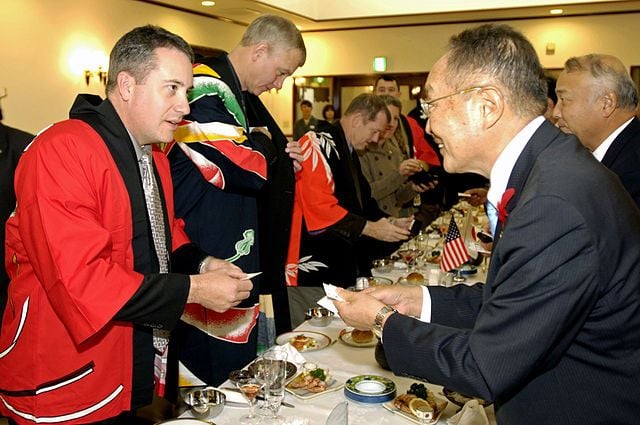Japanese Words to Avoid on Your Business Trip to Japan
Japan’s culture may seem like all fun and games, with catchy J-Pop music and colourful anime comics reaching international popularity. However, the Japanese business world is quite a different story. The pop culture scene and the business sphere in Japan are worlds apart. Any visitor expecting to engage in some type of business meeting or negotiation in this country should be aware of this. Here is a quick guide to general Japanese business culture as well as expressions to avoid during your business trip:
Quick Guide to Business Culture
Firstly, businesswear is almost always required. Men wear suits and women wear dresses and heels. When in doubt, over-dress. Even if it’s summer and extremely hot and humid, businessmen will wear suits with short-sleeve button-up shirts.
The Japanese value business cards, so make sure to go prepared with a stack! There will almost always be a ritual of exchanging business cards at the beginning of any meeting.

Photo of Business Cards via Wikipedia / Public Domain
Don’t stick your hand out when you meet someone. If you are meeting someone for the first time, make sure to stick to a small bow. Bowing is the preferred greeting in business meetings and the lower the bow, the more respect shown. It will show your respect and knowledge of the local culture.
Japanese businessmen aren’t only all work and no pleasure. Most company workers frequently go for a drink after work during the week. This is a way to blow off steam from a long day and to bond with coworkers. If you are invited along to a drinking session, enjoy responsibly!
Expressions to Avoid
1. Informal Language
Japanese has three levels of politeness that are essential to Japanese culture. The way someone addresses you defines your relationship with that person, which is especially important while conducting business relations. One of the most complicated verb forms to put into practice is keigo, the ultra-polite or honorific speech form. Keigo is basically a whole separate vocabulary list. Keigo should be used when an employee speaks to an employer (at least for an interview and at the beginning of a job) or the first time two business associates meet. If you are unsure about your Japanese level, as a foreigner it would be sufficient to use the normal polite verb conjugation (verbs ending in complete form). Try not to use any casual form (shortened verbs) as this is a sign of disrespect in a formal environment.
Learning Japanese? Take our free Japanese level test now!
2. “You”
When you meet someone for the first time, make sure to pay special attention to their name, specifically their last name. If you forget, this is where business cards come in handy! Japanese does not utilize the word “you/anata”, instead one has to use a person’s last name as a sign of respect when addressing them. Always makes sure to add a title after the person’s name, usually “-san” for formal situations.
3. “Are you married?”
The Japanese usually keep their work life and personal life separate. Most work social functions do not include invitations to spouses, only the company’s workers. Workers are friends on a superficial level but do not normally talk about personal issues such as their family, domestic issues, dating life, etc. Of course, this varies by company, but err on the safe side and avoid questions that are too personal.
4. “What time is work over?”
Hard-work ethic is one of the defining characteristics of the Japanese business world. Most workers arrive early and leave late and are expected to do so by management. If you find yourself working side by side with a Japanese colleague, don’t be in too much of a rush to leave the office early or on time, as this may come across as lazy. Of course, you can always say you have to leave at a certain time and it shouldn’t be a problem if you are a visitor to the office.

Photo of clock via Wikipedia / Akustikbasti
5. “No, thank you.”
This might seem strange to avoid saying “No”, but it is related to the concept of saving face in Japan. Many rules of Japanese business etiquette follow the rules of saving face. Avoid causing someone to lose face by pointing out their mistakes or shortcomings in front of others. If someone offers to pay for something like a meal, invites you to their house, or gives you a gift, you should almost always accept. It is polite to offer to pay one time, but after that accept graciously and don’t over insist.
If you feel like this is a lot to process and you need to improve your Japanese to survive these work situations, you are not alone! You can take online classes with our native-speaking Japanese teachers who will prepare you to make the most out of any business meeting with the right tips and phrases.
